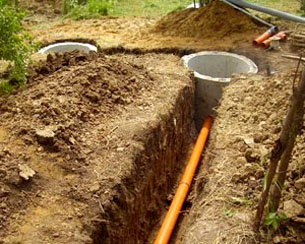Protection from the Underground Metal Corrosion

Corrosion attack is the metal “disease” which is much more complicated and economically difficult to cure than to choose the correct method of protection against the metal corrosion in advance.
When choosing the protection method, it is important to consider all the environmental factors which affect the “wellbeing” of metal object.
This article includes information on the soil (underground) metal corrosion as well as on what protection scheme is the most appropriate in the environment like this.
Actually, the percentage of the activity of electromechanical corrosion completely depends on the soil aggressiveness, its biological ingredients and how stray currents are allocated within it.
It should be clear that all soils possess ionic conductivity specifically because they consist of certain water and chemical compounds. Therefore, one way or another, all metal products that are installed in the soil are under the corrosion risk.
The amount of air and water depends on the soil structure and porosity. The more porous the soil is, the more it is saturated by oxygen. Such grounds have the lowest percent of water. Sandy soils are one of the examples. In such soils, metals are the lowest corrosion risk.
On the contrary, when the pores have microcapillary channels (clayey soil type), its ruining effect on metal is rather high.
It is also important to consider saturation of soluble salts that is mineralization of soil. When the saturation of soil of these microelements is high, there is significantly negative effect on metal that is located in such ground.
The most aggressive and the most corrosion-active soils are the marsh and peat ones. Metal products installed in such grounds become unusable extremely fast.
ЧThe microorganisms in soil play a rather significant part in the corrosion attack as well. Sulfur bacteria, iron bacteria, anaerobic bacteria all are actively involved in the corrosion formation. Moreover, inhomogeneity of the density of these bacteria species within the soil usually leads to the unevenly corrode metal.
Considering all the factors mentioned above, it is possible to calculate the electrical resistivity of the earth. Besides, there is the concept of the average soil aggressiveness (20 to 100 Ohm * m).
In order to protect metal products located in the soil from corrosion “ECP Technologies” specialists recommend using anode grounding as well as the cathodic station of electrochemical protection. For more information about characteristics of equipment intended to protect metals from corrosion please check the "Products" section of our website.




